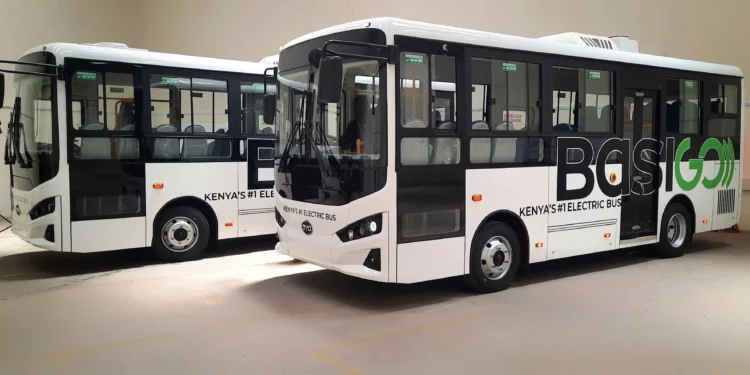BasiGo, a Kenyan electric mobility startup, has announced plans to expand into the Rwandan market by introducing its Electric Buses with the launch of BasiGo Rwanda Ltd.
The move aims to address Rwanda’s public transport crisis, which has been affected by rising fuel costs, resulting in fewer buses operating and limited public transportation options.
According to the startup, the first batch of electric buses is set to be available in Rwanda by October this year, with a goal of having 200 buses in operation by 2024. To facilitate this transition, BasiGo has partnered with AC Mobility, a technology leader in Rwanda’s transport sector, to fast-track the adoption of electric mobility.
The partnership with AC Mobility allows BasiGo to introduce a Pay-As-You-Drive financing scheme, making the electric buses more affordable for potential partners. The Pay-As-You-Drive model has already proven successful in Kenya, where BasiGo currently operates 19 electric buses and collaborates with public bus operators. The collaboration in Rwanda involves three bus operators: Kigali Bus Service, Royal Express, and Volcano Express.
Rwanda was chosen as the next market for BasiGo due to its supportive environment for electric mobility. The country has a strong interest in transitioning its public transport fleet to electric, and a significant portion of its electricity is generated from renewable sources, making electric buses a more climate-friendly option.
The expansion to Rwanda aligns with BasiGo’s mission to create the future of clean, electric public transport across Africa as it joins KABISA, another Rwandese startup working on an electric vehicle ecosystem to enhance environmentally friendly transportation.
In terms of funding, BasiGo raised almost $11 million in 2022 and plans to use the investment to scale its e-bus solution in both Kenya and Rwanda. The company’s business model focuses on delivering sustainable and inclusive public transport options, with more buses expected to hit the roads in both markets.
Rwanda, as a country, has initiated various incentives to encourage the adoption of electric vehicles, including capping electricity tariffs for charging stations at the industrial rate and providing tax exemptions for EVs, spare parts, batteries, and charging station equipment.




